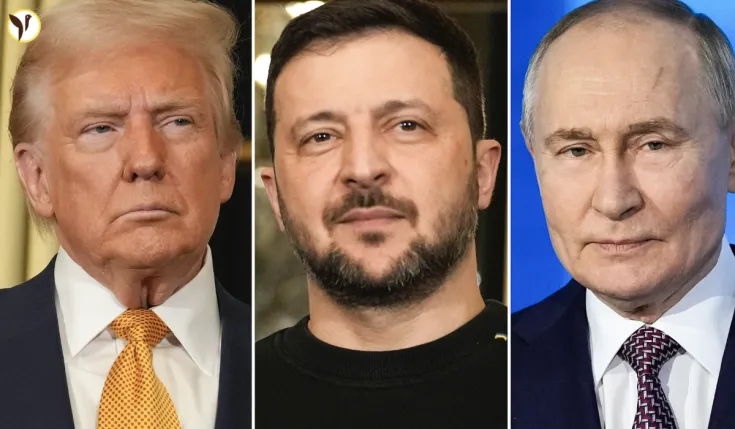Trump's Wild Ride in Ukraine: A Messy Story
Remember Donald Trump's time in office? His approach to Ukraine? Let's just say it was… eventful. It’s still causing headaches and sparking debates today. From personnel shake-ups to some seriously eyebrow-raising dealings with both Kyiv and Moscow, his whole strategy felt like one giant, unpredictable rollercoaster. Let's dive into the chaos and see what we can make of it all.
A Revolving Door of Advisors
Seriously, the number of National Security Advisors Trump went through? It was insane. Mike Waltz's departure after the "Signalgate" mess – where a journalist accidentally got access to top-secret info about US airstrikes – is a perfect example. Brett Bruen, a former White House guy, explained that since the National Security Advisor role doesn't need Senate confirmation, Trump could swap them out super quickly. This was in stark contrast to Pete Hegseth's, shall we say, *interesting* tenure. Hegseth, despite his own involvement in Signalgate, somehow stuck around. Honestly, who saw that coming?
The quick changes underscored how unusual Trump's administration was. Signalgate was a major security breach. And then, boom – Marco Rubio steps in as interim advisor, giving the whole situation a temporarily more "establishment" Republican vibe. Go figure.
Trump's Unconventional Diplomacy
Beyond the personnel drama, Trump's direct dealings with the Ukraine conflict were… well, let’s just say unconventional. He publicly backed Ukraine's sovereignty, sure. But then came his proposed peace plan, which, according to multiple sources, involved giving Russia some serious concessions – land, ditching NATO membership, the works. Stuff that perfectly aligned with the Kremlin’s wish list. You can imagine the outrage from both sides of the aisle, and internationally.
His peace proposals looked suspiciously pro-Russia. His public statements were often all over the place, leaving everyone confused. And his public criticisms of President Zelenskyy? Didn't exactly help matters. It all kinda felt like watching a slow-motion trainwreck.
The Minerals Deal: A Risky Bet
Then there's the minerals deal – the US getting access to Ukraine's mineral resources. On the surface, win-win, right? Ukraine gets continued US support, the US gets crucial minerals. But the reality is far more complicated. You’ve got an ongoing war, damaged infrastructure, and the need for massive surveys and investments. It's a long-term commitment, which sounds great in theory but, given the circumstances… will it even work?
Extracting those minerals is going to be a monumental task. The deal shows a commitment to Ukraine’s future, but its success is far from guaranteed. And let's not forget the huge geopolitical implications this deal could have. It could completely change the power dynamics in the region.
The Verdict: A Lot of Unanswered Questions
Trump's approach to Ukraine was a wild ride. The minerals deal shows some commitment to the long game, but whether his overall strategy was successful remains a huge question mark. The prospects for peace, the challenges of mineral extraction – these things still hang heavy in the air. His willingness to engage directly with Putin, his willingness to negotiate with concessions to Russia... it all continues to fuel debate and intense scrutiny.






